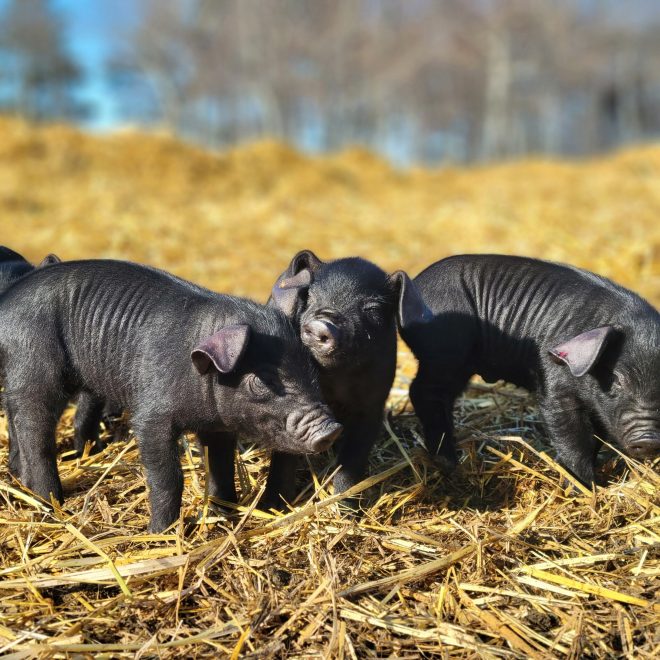
Ethical Animal Husbandry: Sourcing Happy and Healthy Homestead Livestock
Imagine the first time you held a tiny chick in your hands, its soft down tickling your palm. Or perhaps the gentle nudge of a goat looking for a scratch behind the ears. For many homesteaders, the connection to animals is profound. It’s about more than just providing food; it’s about building a sustainable ecosystem based on respect and care. But in a world increasingly disconnected from agriculture, how do we ensure our homesteading practices reflect our values? That's where ethical animal husbandry comes in. This post is your guide to sourcing happy and healthy livestock while staying true to the principles of sustainability, frugality, and practicality.

A homesteader affectionately pets a heritage breed sheep in a lush pasture, showcasing the close connection between humans and livestock in ethical animal husbandry.
Ethical consumerism is no longer a niche trend; it’s a growing movement. Applied to homesteading, it means prioritizing animal welfare, supporting sustainable practices, and knowing your animal’s history from birth (or rescue) to harvest. The benefits are clear: healthier, happier animals, higher-quality products for your family, and the priceless peace of mind that comes from doing what's right.
In this guide, we'll explore how to define your homestead's needs and values, evaluate different sourcing options (from breeders to rescues), spot red flags in unethical practices, and budget for ethical livestock without breaking the bank. Let's build a better homestead, one animal at a time.
Section 1: Defining Your Homestead's Needs and Values
Before you even think about bringing animals onto your homestead, take a step back and assess your situation. Honesty is key here. How much space do you really have? How much time can you dedicate to daily care? What's your experience level with different types of livestock? And, of course, what’s your budget?
Next, consider your homesteading goals. Are you primarily interested in fresh eggs, creamy milk, or perhaps raising meat for your family? The answers will significantly narrow down your options.
Finally, identify your personal values regarding animal welfare and sustainable practices. Are you committed to organic practices? Do you prioritize pasture-raised animals? Are you interested in preserving heritage breeds? These values will guide your sourcing decisions.
It's also crucial to research specific breed requirements and temperaments. A high-strung breed of chicken might not be the best fit for a homestead with young children, just as a large dairy breed would be impractical for a small homestead with limited pasture. Thorough research will avoid headaches down the line.
Key Takeaway: Careful planning is paramount. Matching animals to your homestead's capacity and your ethical values avoids potential problems down the line. A little forethought can save a lot of heartache.
Section 2: Sourcing Options: Pros and Cons
Once you have a clear understanding of your needs and values, it's time to explore your sourcing options. Each option comes with its own set of pros and cons, so careful consideration is essential.
- Breeders: Buying from reputable breeders who prioritize animal welfare and health testing is often the safest bet. Look for breeders who are transparent about their practices, allow farm visits, and are willing to answer your questions thoroughly. They often invest heavily in the genetics of their animals, increasing production and resilience. The downside? Higher initial costs compared to other options.

A reputable breeder proudly displays healthy, well-cared-for chicks to a potential buyer, emphasizing transparency and responsible breeding practices.
- Local Farms: Supporting local farms is a win-win. You get to understand their practices firsthand, build relationships with local food producers, and often find animals that are already adapted to your region's climate. However, availability may be limited depending on your location and the farmer's specific offerings.

A picturesque scene of a small herd of dairy cows peacefully grazing in a sun-drenched pasture, illustrating the idyllic conditions often found on local, ethically-minded farms.
- Auctions and Sales (With Caution): Auctions and sales can be a tempting option for finding animals at lower prices, but they come with significant risks. The animal's history is often unknown, and potential health issues may be lurking. If you choose this route, carefully evaluate animals for signs of health and vitality, and always quarantine new arrivals before introducing them to your existing flock or herd.
- Tip: If you purchase an animal from an auction, ask the sale barn for its health record. Most auctions require animals to have a basic level of health.

Rescues and Sanctuaries: Giving a home to animals in need is a noble endeavor. Rescues and sanctuaries often have animals with unknown histories or health issues, so be prepared for potential challenges. However, the reward of providing a loving home to an animal in need can be immense.
Online Marketplaces (Use Discretion): Online marketplaces like Facebook Marketplace or Craigslist can be a convenient way to find livestock, but exercise extreme caution. Scams, misrepresentation, and even illegal sales are common. Meet sellers in person, ask for references, and thoroughly inspect the animal before committing to a purchase.
Key Takeaway: Each sourcing option has its advantages and disadvantages. Thorough research and careful consideration are essential. There is no "one size fits all" answer.
Section 3: Red Flags and Ethical Considerations
Learning to spot red flags in unethical breeding or farming practices is crucial for ensuring the well-being of your animals. Keep an eye out for overcrowding, poor sanitation, lack of access to pasture, and signs of neglect or abuse.
Don't hesitate to ask breeders and farmers about their animal welfare practices. What are their feeding practices? What healthcare do they provide? What are the living conditions like? A reputable seller will be happy to answer your questions and provide evidence of their commitment to animal welfare.
Here are a few examples of questions to ask:
- "Can I see the animal's living conditions?"
- "What are the animal's medical records?"
- "What is the source of their food?"
- "How are their living conditions maintained?"
Most importantly, trust your instincts. If something feels off, walk away. There are plenty of ethical breeders and farmers out there who deserve your support.
Key Takeaway: Due diligence is crucial. Don't be afraid to ask tough questions and look for red flags. A healthy and happy animal starts with ethical sourcing.
Section 4: Budgeting and Planning for Ethical Livestock
Ethical animal husbandry doesn't have to break the bank. While it may require a slightly higher initial investment, there are plenty of ways to reduce costs without compromising animal welfare.
Start by breaking down the costs associated with acquiring and caring for livestock: initial purchase price, feed, housing, healthcare, and fencing.
Explore strategies for reducing costs, such as building DIY shelters, foraging for feed, and bartering for services. Consider purchasing feed in bulk or growing your own.
Creating a realistic budget is essential to ensure you can provide adequate care for your animals. It's better to start small and expand gradually than to overextend yourself and compromise animal welfare.
Consider the long-term investment in ethical livestock. Healthier, happier animals are more productive and require less veterinary care, ultimately saving you money in the long run.
Key Takeaway: Ethical animal husbandry doesn't have to break the bank. Careful planning and resourcefulness can make it accessible to more homesteaders.
Conclusion
Ethical animal husbandry is more than just a trend; it's a fundamental principle of sustainable homesteading. By prioritizing animal welfare, supporting local farms, and making informed purchasing decisions, we can create a more humane and resilient food system. Remember, every choice you make has an impact, and even small steps can make a big difference. So, take the time to research your options, ask the right questions, and choose animals that align with your values. You, your animals, and your community will benefit.
Now it's your turn! What are your experiences with sourcing ethical livestock? What tips and advice can you share with the community? Leave a comment below!